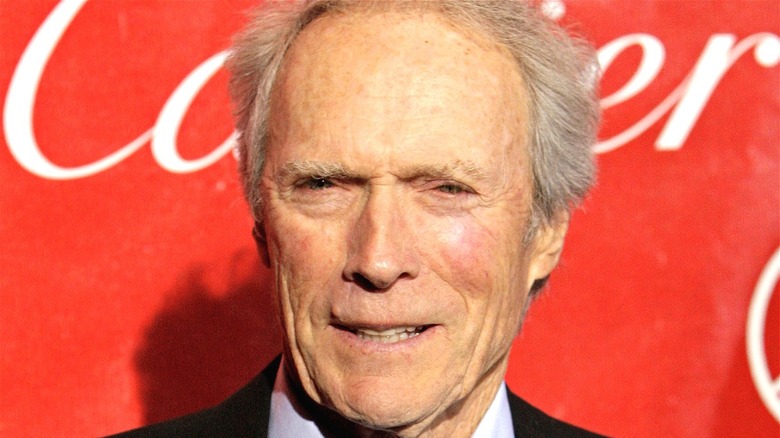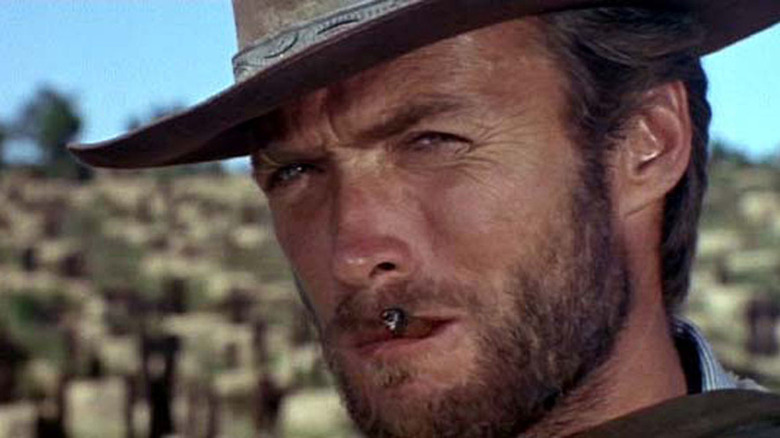The Iconic Role That Made Clint Eastwood Physically Ill
Among the manliest of macho movie men, few actors exude an aura of toughness more than Clint Eastwood. Whether he's playing a leather-skinned cowboy, a loose cannon cop, or a grizzled old war veteran with the vocabulary of a sailor, Eastwood's characters are anything but soft in either body or mind. For all of that fictional toughness, however, the real Clint Eastwood is just like you and me — a squishy human. As he himself would admit, acting tough doesn't mean much when, for instance, you just survived a plane crash and have to swim through potentially shark-infested waters to get home.
In fact, there are lots of things that might break the facade of Eastwood's archetype. Despite starring in many Westerns, he's actually allergic to horses and a number of other fuzzy critters. However, even knowing all of that, Eastwood apparently had one other Achilles heel that he had to fight through during his time as a cowpoke. One of his most iconic Western roles had a nasty habit, and it often left Clint Eastwood feeling physically ill.
Maybe the Man With No Name should switch to gum?
If you're familiar with Clint Eastwood's career at all, then you certainly know about the "Dollars Trilogy." This more-than-iconic series of Westerns stars Eastwood as the "Man With No Name," a mysterious drifter with a penchant for shooting bad guys and smoking cigarillos. According to Eastwood's biography, "Clint: The Life and Legend," director Sergio Leone would often have Eastwood do so many takes that the tobacco from said cigars would make him feel sick. Eastwood would even sometimes tell Leone, "You'd better get it this time, because I'm going to throw up."
Now, it's generally industry standard to use both fake weapons/ammunition and fake tobacco when filming movies. And while the former of these two rules were observed, the "Dollars Trilogy" was filmed decades before the Master Settlement Agreement, a 1998 accord that imposed greater restrictions on tobacco in media. As a result, most movie studios have since switched to herbal cigarettes as a replacement. In the 1960s, however, Eastwood was smoking genuine tobacco for every take. While this certainly looks cool for the characters in the movies, it also carries all of the adverse side effects that come with tobacco usage.

